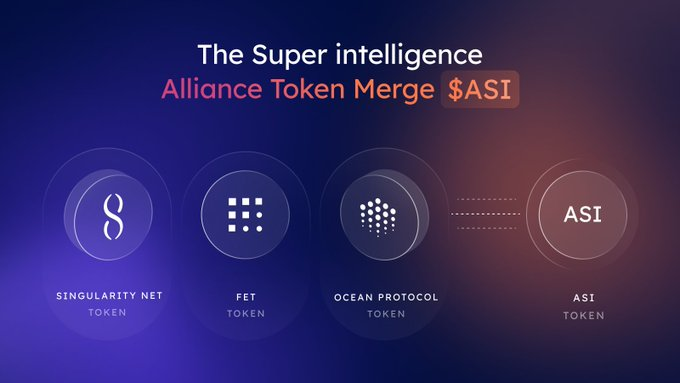Fetch.ai Mainnet Upgrade: Technological Innovation and Ecological Impact
On March 31, 2025, Fetch.ai completed a key upgrade to its mainnet, focusing on strengthening security frameworks and optimizing network operational efficiency. This upgrade is not just a technical iteration, but a significant step towards advancing its decentralized artificial intelligence (AI) ecosystem.

Core of the Upgrade: Dual Improvements in Security and Efficiency
The mainnet upgrade, approved through Governance Proposal #35, focused on optimizing the governance module and validator protocols:
Governance Threshold Adjustment
Only users who have delegated FET tokens on the mainnet are allowed to participate in governance voting, isolating the direct impact of cross-chain holders (such as those on Ethereum or BSC) on decision-making, thus enhancing transparency.
Enhanced Anti-Attack Capabilities
Validators are required to follow strict operational guidelines, reducing network downtime to one hour and improving recovery efficiency by 50%.
Seamless Compatibility
APIs and chain states remain unchanged, meaning developers don’t need to adjust existing applications, reducing the cost of ecosystem migration.
This upgrade provides a more stable operating environment for Fetch.ai’s Autonomous Economic Agents (AEA) architecture, making it particularly suitable for high-security scenarios such as supply chain finance and IoT device collaboration.
From History to the Future: Fetch.ai’s Technological Evolution
Since its establishment in 2017, Fetch.ai has focused on the integration of AI and blockchain. Key innovations include:
-
AEA Agent Network: Autonomous decision-making agents capable of performing complex tasks (e.g., automated trading, resource coordination).
-
Colearn (Collaborative Learning): Multi-agent collaboration that optimizes models to enhance data utilization efficiency.
In 2024, Fetch.ai merged with SingularityNET and Ocean Protocol to form the ASI Alliance, with the token unified under ASI. This mainnet upgrade further solidifies Fetch.ai’s position in the decentralized AI field and lays the foundation for cross-chain circulation of the ASI token.
Token Conversion and Market Impact
According to the upgrade plan, FET tokens on the mainnet will be automatically converted to ASI, with a 1:1 exchange ratio. This conversion will require no manual operation from users, and staked funds and rewards will remain secure. For users holding FET on exchanges, they can monitor price fluctuations and conversion details via JuCoin.
Market analysis suggests this upgrade may drive two trends:
Staking Incentive Growth
The reduction in validator thresholds may attract more users to participate in network maintenance, enhancing decentralization.
Cross-Chain Ecosystem Integration
The compatibility of the ASI token will accelerate Fetch.ai’s interoperability with ecosystems like Cosmos and Polkadot.
Industry Significance of Decentralized AI
The Fetch.ai upgrade is not just a technical iteration but also reflects broader industry trends:
Upgraded Security Demands
Aligning with the direction of “Trusted AI” outlined in the AI Framework White Paper, Fetch.ai enhances the robustness of models through on-chain governance and cryptographic protocols.
Infrastructure Competition
Similar to Ethereum sharding and Cosmos IBC protocols, Fetch.ai’s upgrade highlights the demand for high-performance, full-scenario support in public blockchains.
In the future, as AI agents are implemented in scenarios like logistics and healthcare, Fetch.ai may become the platform of choice for enterprises adopting decentralized technologies. For example, its partnership with Tesla on in-car payment systems has demonstrated the potential for a machine-driven economy.
Future Outlook
The Fetch.ai upgrade marks the shift of decentralized AI from concept validation to scalable application. For investors and developers, the following areas should be closely monitored:
-
Technology Integration: Can the ASI token become the universal asset for cross-chain AI ecosystems
-
Regulatory Progress: How will policies such as the EU’s Digital Identity Act impact the deployment of decentralized AI
To learn more about the integration of blockchain and AI, visit the JuCoin Research Institute for in-depth analysis.




